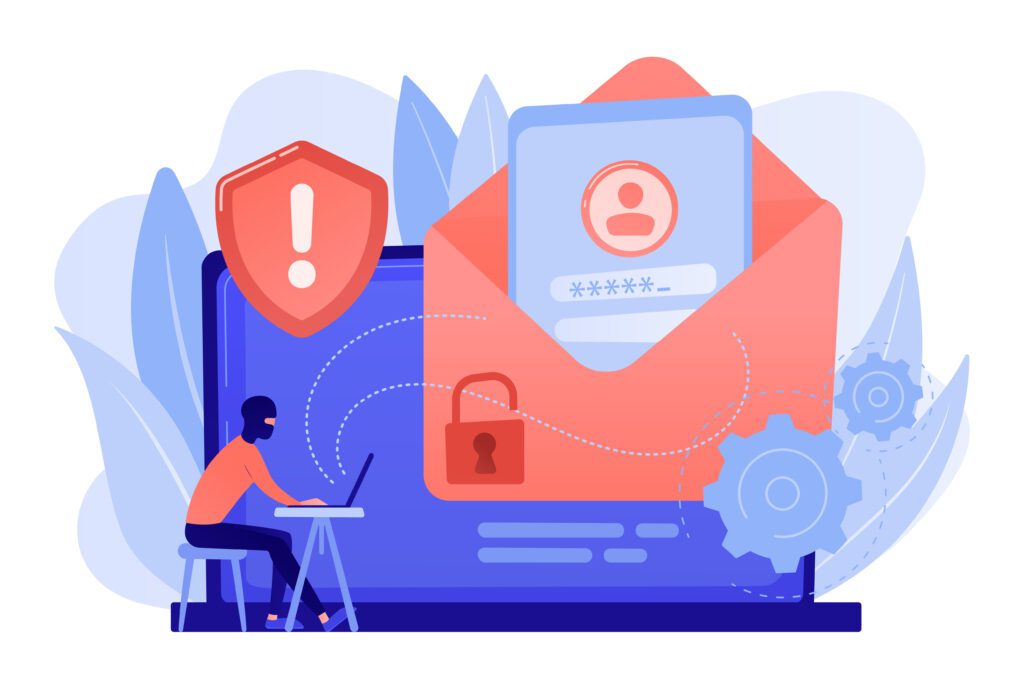Iwdlaksjdiw kwaiow WOaksjdi Xwladkawi

Dating apps are today as integral to modern courtship like going to the movie or purchasing flowers. But apps for dating, such as Tinder, Grindr, or Bumble are a major privacy concerns. On Valentine’s Day, take some time to ensure your privacy while using dating apps.
Dating online can be a security problem due to the fact that it’s a Catch-22. You’re likely looking to attract someone, and you want to establish a level of intimacy, however you’re talking to an individual you’ve never seen before. This requires a delicate dance of sharing enough details about yourself to entice without divulging too many details. It is also important to be willing to share information with people who are on the other side of the conversation, assuming they’re in good trust.
Fraudsters are aware. They’ve begun by hacking these apps or employing social engineering to gain access to photographs of the most sensitive to people, or fool people into paying for services. As per the US Federal Trade Commission, romance fraud has been growing steadily and in the last year, more than $547 million was lost due to these scams by 2021.
Beyond scammers, a lot dating apps make use of the information you provide to show you advertisements. If you think about the fact that millions of users use dating apps all over the world to connect with new people, there’s an abundance of data to be tapped. Furthermore, many dating apps have been less-than-responsible stewards of the data entrusted to them.
What information do dating apps collect?
Most dating apps make use of the information they gather from you to retarget users with advertisements. This is the way they stay running while providing their services at no cost. (It’s another reason why you will have better privacy settings when you purchase an account with an app for dating.)
When you look at the types of personal information apps ask users to provide when they sign up for an account, the data gathering can be alarming. For instance, before you are able to use Tinder you need to provide:
- Your number on your phone or Google or Apple account
- Your initial name
- Your birth date
- Two pictures of you
- Your location when you turn on the tracking of your location on your phone
- Your sexual preference
Most dating apps require users to provide more details including your location of work to your favourite hobbies to your nationality. They also track all activities in their app, such as swipes, and chats. Naturally, dating apps will use the details you give it to show you advertisements.
Many dating websites also include numerous trackers. Ghostery discovered the Match Group dating services (including Match.com, Tinder, and OkCupid) included as many as 36 trackers in their websites as well as tracks that came from Facebook along with Google.
Dating app data breaches

The majority of dating apps are relatively new. Tinder was launched in 2012, but it has been through multiple data breaches and been discovered to have improperly shared personal data of users. This is unfortunately the norm for dating apps, and it is crucial to be aware of when you choose what personal information to share with Tinder.
In 2013, security experts found the trileration attack ((similar like triangulation) that Tinder was able to allow third parties to track users’ precise location even to within 100-300 feet. Tinder was able to fix the issue by merely stating their users’ locations in increments of miles which made the location information less accurate. The issue was discovered in 2014 when researchers discovered the exact issue with Grindr. Grindr claimed that they had solved the issue, however in 2016 researchers from Japan were able to determine Grindr users’ locations. In the year the year of 2018, another security expert found the exact location of Grindr users and even those who were not able to opt out of having Grindr disclose their location information.
A study by Kaspersky from 2017 reviewed a number of dating apps like Tinder, Bumble, and OkCupid and discovered that the majority of Android applications kept sensitive information stored on an Android device with no protection. Hackers could utilize Facebook authorization tokens in order to get acces to the account. If a hacker gained this access, they were able to view all messages exchanged and received by these devices for dating.
In January of 2018 the cybersecurity firm Checkmarx observed that Tinder was not using HTTPS encryption to protect photos in it’s iOS and Android apps. If hackers were connected on an identical WiFi network as Tinder users, they could be able to access the same photos. Tinder user they could view the same pictures that the users were looking at, no matter if they swiped left or right and could even add photos to the queue of that user. Tinder has since incorporated HTTPS security to every one of of its services.
In April of 2019 in April 2019, the Norwegian Consumer Council (NCC) lodged a complaint after finding that Grindr had shared its clients’ HIV status with third parties without their consent. Grindr has since announced that it that it will not share the health information of its users with third-party organizations.
The NCC also filed a complaint in 2020 following the discovered the following: Grindr Tinder as well as OkCupid were sharing information unintentionally with advertising networks and other third-party. The data included the users’ genders, ages as well as GPS coordinates IP address, as well as specifics about their device.
In the month of January 2021, the dating site MeetMindful.com experienced an attack on its data that revealed the information of its 2.3 million customers. The breach revealed geolocation information as well as names and address information, email details Facebook identification numbers, Facebook authenticator tokens and much more. Then, in the same year, a security engineer discovered that Bumble was able to use trilateration attacks (similar similar to that of Tinder) which could reveal the location of users.
A majority of these security flaws are now fixed however, they do point to an attitude of naivety and indecision when it comes to personal data. It is good to know that there are ways you can do to fix potential security issues within the dating apps you use.
How can you protect your privacy when using dating apps
Security of your account
- Make sure you use a unique, secure security code along with 2-factor verification when it’s readily available.
- Beware of hyperlinks particularly those that use short URLs. Hackers are trying to lure users away from Tinder to websites where they have the ability to steal your information. This is among the most popular Tinder scams. Rest your cursor over any link before you click it, or copy and paste the link into https://www.checkshorturl.com/.
- Make sure you only access your dating app via secured WiFi networks. An even better alternative is to secure your internet connection for your dating app by using an reliable VPN. This adds an additional layer of security to your application’s encryption.
- Think about signing up to an expensive package. Many dating apps offer additional privacy options like disabling location tracking or obscuring your account in the case of the paid plan.
Security and Social Engineering
- Do not share your complete name address, address, or location of employment in the profile. Tinder, Bumble and Happn all let users provide information about their job as well as their education. Just by providing this information and a first name Kaspersky researchers have matched profiles on dating apps to an account on LinkedIn and Facebook account about 60 percent often.
- Use a VPN stop trackers on dating apps and the trilateration attack. Nearly every dating website and app has trackers that will be tracked on your internet. VPN’s NetShield Ad-Blocker prevents trackers from loading, which speeds your internet connection. In addition like other ads blockers it is able to the trackers of applications, not only in your browser.
- Select your profile photos with care. Many details can be found in the background of a picture which can serve as a way to locate you. Be aware that if you upload images taken from your account on social networks, reverse image searches could connect your dating profile to the account.
- Do not connect the account you use for dating with other accounts like Facebook, Twitter, Instagram or any other. This makes it possible for hackers to connect your social media profiles to your dating account on the internet. Also, it could expose your information should Facebook was to be the victim of the consequences of a data breach.
- Use your normal email address for dating apps or to make contact with new partners. Instead, use an an alias or an personal email specifically for that app or for a relationship.
- Always disable location-sharing features.
- You can give a temporary telephone number to your potential matches. You can make use of services such as Phoner and Burner, which offer temporary numbers that can last for several weeks free or at a low cost. Since they’re not permanent, it’s difficult to put an account with a phone number. dating app, but it might give you time to get to know your partners in person before you give them your personal information.
- Reverse image search your partner’s profile photo If you feel something is odd. If you discover that the photo belongs to an agency for modeling or a foreign star, then you’re probably having a look at a fake account.
- Don’t share details that can be used to identify the person you are. Eventually, you are required to disclose details about you. You want to convince someone that you’re attractive enough to be able to meet. Be sure to elaborate on your goals, interests and choices. You should say more than “I like pizza” than “My most favorite pizza joint is located at the corner of Main St. and 2nd Ave.” Do not be scared to tell “no” when someone wants to know details about yourself that you aren’t yet comfortable with sharing.
- Avoid sending photos to people you do not know. Photos can include metadata about the time and place where the picture was taken. If you are sharing photos, make certain to take out the information first.
- Beware of talking to bots. Online bots are becoming more difficult and harder to spot However, one test you can do is to translate in gibberish to create a phrase for example “I love a;lkjasdllkjf” and then see whether the bot repeats the word or if it changes into an unrelated question. (If you’re a human it’s possible to make it appear as if your phone fell.)
- I when someone asks you on an app for dating to give the person money, your response must remain “No” unless you want to appear in The next edition of The Tinder Swindler.
- Don’t immediately like your friends to Facebook. Once someone has access to your Facebook account, they are able to look up your family and friends on the network, as well as your previous actions and locations. Make sure you wait until you’ve been in contact for at least a month before you start chatting with them. (Or better yet, quit Facebook.)
Physical security
- Make arrangements to meet in a public place and notify a friend the location you’ll be in. You should also decide to meet in an open and neutral location and not in the café or restaurant you frequent each week.
Don’t let this suggestion put you off dating apps! They are fun to use, and have helped millions of people meet dates or hookups with friends and even partners. Be careful not to let the arrow of Cupid lure the user into false feelings security. Always be aware that this person who appears too promising to be real could actually be.

